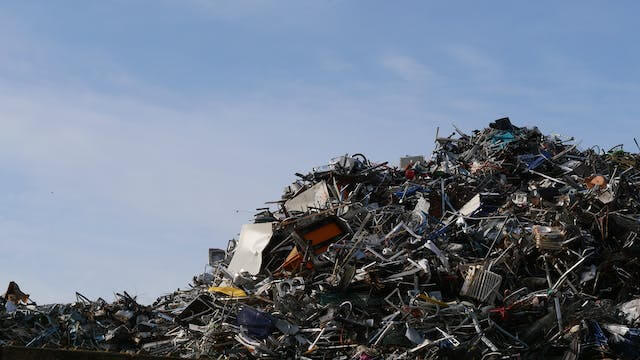
There are lots of types of metal in the world, and the good news is, almost all of them can be scrapped and then recycled.
Most Commonly Recycled Metals
Most metals can be scrapped. Broadly speaking, they can be split into three categories:
- Ferrous metals are metals composed mainly of iron. These metals are magnetic and easily separated in the recycling process. Examples: steel, cast iron, wrought iron.
- Non-ferrous metals are non-magnetic metals that do not contain a large amount of iron. Examples: aluminium, copper, tin, zinc.
- Alloys are mixtures of two or more metals, all of which require a more complicated procedure but can still be recycled. Examples: stainless steel, brass, bronze.
There are so few metals that can’t be scrapped that it’s actually easier to list these than to list the metals that can be scrapped.
What Metals Can’t Be Scrapped?
Here are some examples of metals that generally can’t be scrapped:
- Uranium
- Plutonium
- Mercury
- Metals covered in paint or motor oil
- Non-stick metal pans
If your unwanted metal has radioactive or toxic properties, a scrap yard won’t want it. Metals like uranium and plutonium need to be handled and disposed of extremely carefully, with facilities that most recycling centres (including ours) don’t have. Fortunately, most household items don’t have such properties, so you can safely scrap your old metal items in favour of new ones.
Lead is often listed as not recyclable, but it actually can be recycled – it just needs careful management. You may find that your local scrap dealer does not take lead, but we do accept lead here at A&L.
Alongside lead, you will often see mercury listed as non-recyclable. Unfortunately, mercury is a toxic metal that really cannot be scrapped, and we don’t accept it here.
There are also certain situations in which non-toxic metals can’t be scrapped. For example, if it has been covered in paint or motor oil, it cannot be scrapped. This is because these substances can’t be cleaned off in such a way as to ensure that all chemicals are removed. Kitchen pans coated in non-stick materials also can’t be scrapped, precisely because of the non-stick layers.
However, your local recycling centre may still take these items from you and send them away to be disposed of properly.
If you have any concerns about whether your metal items can be scrapped, please don’t hesitate to contact us, and we’ll do our best to answer your queries.
Check Scrap Metal Prices
READ MORE: Why Recycle Scrap Metal?
